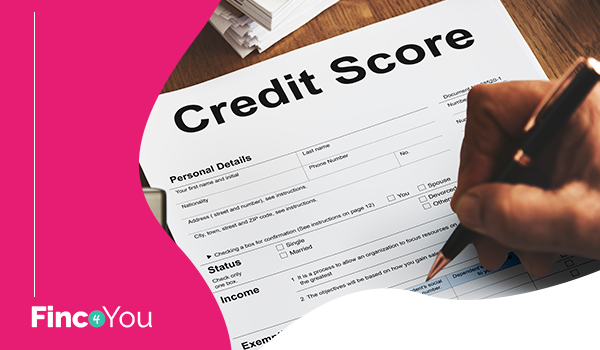Your credit score is an important number that can have a big impact on your life, beware of low credit score.

If you monitor your finances regularly, you may find that your credit score is dropping. If you’re wondering why my credit score went down, look no further. Let’s take a closer look at some of the reasons behind this unexpected decline. We’ll also point out ways to get your credibility back on track.
Common Reasons Your Credit Score Dropped: Your credit score will reflect your credit report. Factors that affect your credit score can lower or raise it, depending on your choices. Let’s dive into some of the most common reasons to answer your question: Why did my credit score go down? Avoid low credit score.
Complex and excessive credit inquiries: When looking for any kind of new loan, you are likely to be keeping an eye on your credit score. You may experience a sharp drop in applying for new loans. In that case, the drop in your credit score is likely the result of many difficult loan inquiries. While credit inquiries play a small role in your overall credit score, they could be the cause of your recent recession. Avoid low credit scores.
Other information low credit score
If you applied for multiple new lines of credit in the last month, this is the most likely reason for you to decline. It is important to note that verifying your creditworthiness is not considered a difficult investigation. Only when applying for a new loan or a new line of credit will you have to deal with difficult queries.
Late payments or non-compliance with deadlines: Late payment can affect your credit report, which can lead to a lower credit score. This is especially true if you continue to make late payments. Also, if you miss a payment altogether, it can also cause your credit score to go down. Lenders prefer borrowers who can make timely payments regularly. A lower credit score can indicate to potential creditors that you are incompatible with paying on time. Avoid low credit score.
Cumulative debit balance: If you have revolving debt, it is possible that your balance will grow each month. For example, if you have credit card debt, it can grow each month without paying your full balance.
Closing an old account can cause your credit score to go down: While closing an account after paying off your debt can be tempting, it can cause your credit score to go down. FICO credit scores take into account the age of your accounts. Older accounts are considered a positive sign of your credit history.
After all, if you’ve been responsible for your credibility for a long time, lenders want to work with you. As you close older accounts, the average age of your credit accounts decreases and can also drag your credit score down.
Bad credit repor: Foreclosures and bankruptcy can have a significant impact on your creditworthiness. A sharp drop in your credit score could be the result of a recent foreclosure or bankruptcy. In most cases, this type of mark on your credit report will have a big negative impact on your credit score. Unfortunately, the effects can cripple your creditworthiness for years.
Why did my score drop for no reason?
Perhaps none of these factors apply to you and you’re wondering why my credit score went down when nothing changed? Well, chances are it wasn’t your fault. Here are some reasons that could have caused this.
Cloning: Being a victim of identity theft is one of the worst causes of your credit score declining. When this happens, people can use your identity to apply for loans like credit cards, open utility bills in your name and even steal your tax refund!
That’s why it’s important that your credit is checked regularly to see if everything is tied to it. If someone gets into debt and doesn’t pay the bills on your behalf, it can hurt your finances.
Credit report error: Sometimes it is possible that creditors have accidentally submitted an incorrect report to the credit bureaus, which in turn affects your score. Just because they’re big companies doesn’t mean they won’t make mistakes.
Once you discover an error, contact the reporting company that provided the information you provided, as well as the credit reporting agencies so they can correct the error.
The credit limit lowered: Another reason your score may drop could be if a credit limit has been lowered due to underutilization or changes in your credit. This can lower your total debt/credit ratio, which in turn can affect your score. You can contact the company to ask why your limit was lowered and reset if possible. . As you hit your balance, your score also improves. So, work to clear the debt and pay off your card every month.
How to keep track of your credit score for free?
Whatever the reason for the recent drop in your credit score, don’t worry! There are many ways to improve your credit score. The best place to start is to regularly check your creditworthiness. We have two favorite features that let you monitor your credit report for free:
- credit karma
Credit Karma is an easy-to-use website that will send you useful advice about your credit standing. If you fall, you can act quickly. Credit Karma provides access to your credit history and credit reports from two of the three major credit bureaus.
Reports are updated weekly so you can always check your credit report. Take a minute to learn about the accuracy of credit karma before you begin.
- annualcredit.com
The name denotes the services offered by this website, you can view a credit report every 12 months. This free credit report is a great way to verify that all your information is correct each year. Both options are reliable and useful ways to monitor your creditworthiness. Take a minute to review these options and decide which one works best for you.
How to increase your credit score?
If you’ve seen a drop in your credit score recently, restoring your credit score may be a priority. Fortunately, it is perfectly possible to get your credit back. As your credit improves, you will unlock better credit terms and rates on major purchases such as a house or a car. Better credit terms can save you thousands of dollars over the life of your loan. If you implement the strategies below, you will be amazed at how quickly your bottom line can recover. Let’s take a closer look at the best ways to improve your credit score.
- Pay off accumulated debts
Revolving debt linked to lines of credit that you can easily access, such as: Your credit card or home equity line of credit. You can potentially increase or decrease the amount of that revolving debt each month. A personal loan with a scheduled payment term and monthly payment. If you’ve allowed your credit card balance to build up, it’s likely to negatively impact your credit score and cause it to drop.
- Pay bills on time

Lenders rate borrowers who can consistently pay their debts on time. In fact, paying on time is one of the fastest ways to improve your credit score. One way to always make payments on time is to automate your finances. Automation can be the key to managing your money efficiently. You no longer have to worry about paying your bills. Instead, all your debt payments will be made on time, without the headaches.
- Take out loans to build your credit
Getting a mortgage loan is a surefire way to improve your credit score when you can make your payments on time. When you take out a construction loan, the loan amount is held in a bank account until you default on the loan. Throughout the loan process, you make timely payments that the lender will report to the credit bureaus.
Payments you make along the way include principal and interest. At the end of the repayment period, you will receive the money that the lender holds in an account for you. You can build your credibility and savings at the same time.
Conclusion
A good credit rating can unlock better credit terms for the big purchases of your life. With better credit terms, you can potentially save thousands of dollars on big purchases, like a house for life. Remember at the end of the day; It’s about using credit wisely.


